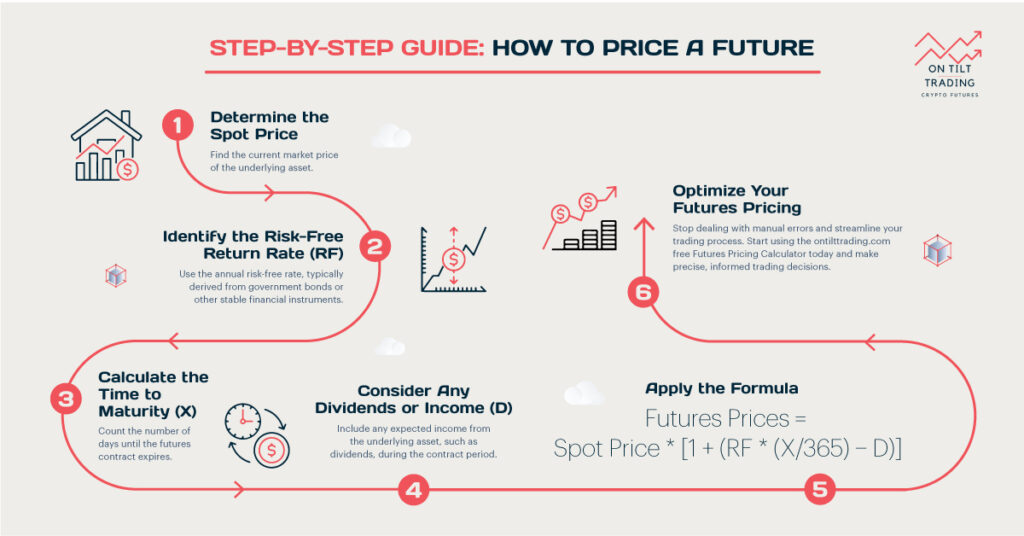Day trading refers to buying and selling financial assets within the same trading day. Day traders typically aim to profit from short-term price fluctuations in stocks, currencies (forex), futures, or options markets. Unlike long-term investors who hold positions for weeks, months, or even years, day traders close their positions before the market closes each day. Are futures best for day trading? Let’s try to find the answer to the question.
What are Futures Contracts?
Before we can answer whether futures are best for day trading, it’s essential to understand what futures contracts are. A futures contract is an agreement to buy or sell a specific asset at a predetermined price on a future date. These contracts cover a wide range of assets, including commodities (like oil, gold, or wheat), stock indices, currencies, and even cryptocurrencies.
The key feature of futures contracts is that they allow traders to speculate on the future price of an asset without actually owning it. This characteristic makes futures an attractive option for many day traders.
Why Consider Futures for Day Trading?
Make Profit From Price Movements
Futures contracts typically require only a fraction of the total contract value as initial margin. This leverage allows traders to control a larger position with a smaller amount of capital. It can amplify potential profits from even small price movements.
Liquidity
Major futures markets, such as those for indices (like the S&P 500) and commodities (like oil or gold), are highly liquid. High liquidity ensures that traders can enter and exit positions quickly and at desired prices, minimizing slippage.

Lower Transaction Costs
Futures trading often involves lower transaction costs compared to trading individual stocks. This is beneficial for day traders who frequently execute multiple trades throughout the trading session. Lower costs can contribute to higher profitability, especially when trading on smaller price movements.
Extended Trading Hours
Futures markets operate nearly around the clock, allowing traders to react to global news and events outside regular stock market hours. This extended access provides day traders with more opportunities to capitalize on market movements. Futures contracts allow traders to profit from both rising (going long) and falling (going short) markets. This flexibility is advantageous for day traders who seek to capitalize on short-term price fluctuations regardless of market direction.
Besides, futures contracts are standardized in terms of size, expiration date, and quality specifications. It simplifies the trading process, reduces complexity, and makes it easier for day traders to analyze and compare different contracts.
Challenges of Day Trading Futures
High Risk
The leverage available in futures trading can amplify both profits and losses. While this leverage enhances potential gains from favorable price movements, it also means that adverse price swings can lead to substantial losses quickly. Traders must manage risk carefully to avoid significant financial setbacks.
Complexity
Futures markets can be more intricate compared to stock markets. Traders need a solid understanding of concepts such as contract specifications (including size and quality), expiration dates, and the process of rolling over positions from one contract month to another. This complexity requires ongoing learning and adaptability.
Margin Requirements
Futures trading necessitates maintaining a minimum account balance known as margin. If the account balance falls below this level due to losses, traders may receive a margin call. This requires them to either inject additional funds into the account or close positions to meet margin requirements.
Volatility
Futures markets, particularly those for commodities and certain indices, can exhibit high volatility. While volatility presents profit opportunities, it also increases the risk of unexpected price movements. Traders must be prepared for rapid and sometimes unpredictable price swings.
Need for Advanced Strategies
Successful day trading in futures often demands more sophisticated strategies and risk management techniques compared to trading individual stocks. Traders may employ techniques such as technical analysis, chart patterns, and specific trading algorithms to navigate market conditions effectively. Are you concerned about market volatility? Our On Tilt Trading Volatility Calculator measures asset volatility, helping you manage risks and refine strategies. Make informed decisions in dynamic markets. Stay ahead today!
Emotional Stress
The fast-paced nature of day trading futures, combined with the potential for significant financial gains or losses, can be emotionally taxing. Traders may experience heightened stress levels, especially during volatile market periods.
Comparing Futures to Other Day Trading Instruments
Stocks
Stocks are familiar to most traders and offer a wide range of choices. They can experience significant price movements, providing ample opportunities for day traders.
Trading individual stocks can involve higher transaction costs compared to futures. Stock trading is limited to exchange hours, which may restrict trading opportunities for day traders. Short-selling stocks can also be more challenging and involve additional costs and regulations.
Forex (Foreign Exchange)
The forex market boasts high liquidity and operates 24 hours a day, five days a week. Transaction costs are typically lower than in futures trading, and forex offers high leverage. It allows traders to control larger positions with less capital.

Forex markets are less regulated compared to futures markets. It can expose traders to potential manipulative practices.
Options
Options provide traders with limited risk when buying (as losses are capped at the premium paid), along with the potential for high returns relative to the capital invested. They offer flexibility to profit from various market conditions, including volatility, through strategies like straddles and strangles.
Options can be more complex than futures. It requires a good understanding of factors like time decay (which erodes the value of options over time), volatility changes, and the Greeks (factors that influence option pricing). Liquidity can vary widely among different options contracts, impacting execution and pricing.
ETFs (Exchange-Traded Funds)
ETFs offer diversification across various asset classes within a single trade, similar to mutual funds but with lower costs. They provide exposure to sectors, commodities, or indices without requiring direct ownership of individual assets. ETFs typically offer less leverage than futures contracts. Like stocks, ETF trading is confined to exchange hours, limiting opportunities for day trading compared to futures. ETFs may also exhibit lower volatility than futures, potentially reducing potential profit opportunities for day traders.
Is Day-Trading Futures Right for You?
Whether futures are the best choice for day trading depends on various factors, including your trading style, risk tolerance, capital, and market knowledge. Here are some considerations to help you decide:
Capital Requirements
Futures trading typically requires substantial capital due to margin requirements. Assess whether you have sufficient funds to meet initial margin requirements and handle potential losses that may occur due to market volatility.
Risk Tolerance
Futures trading is characterized by high leverage, which amplifies both profits and losses. Consider whether you are comfortable with the inherent risks and volatility associated with futures markets.
Market Knowledge
Successful futures trading demands a solid understanding of the specific markets and instruments you intend to trade. This includes familiarity with contract specifications, market mechanics, and factors that influence price movements in those markets.
Time Commitment
Day trading requires active monitoring of positions and the ability to react swiftly to market changes. Evaluate whether you can dedicate sufficient time during market hours to execute trades, manage positions, and stay informed about market developments.
Technological Resources
Access to reliable trading platforms, real-time data feeds, and analytical tools is crucial for executing trades effectively in futures markets. Ensure you have access to the necessary technological resources.
The fast-paced nature of futures trading can be emotionally taxing, especially during periods of market volatility. Assess your ability to maintain emotional control, stick to your trading plan, and avoid making impulsive decisions based on market fluctuations.
Strategy Compatibility
Evaluate whether your trading strategy aligns with the characteristics of futures markets, such as leverage, liquidity, and market hours. Consider whether your strategy is well-suited to capitalize on short-term price movements in futures contracts.
Tips for Successful Futures Day Trading
- Practice with a simulated account before risking real money.
- Specialize in a small number of futures markets rather than trying to trade everything.
- Use stop-loss orders and position sizing to limit potential losses.
- Keep up with news and events that could impact the markets you’re trading.
- Just because high leverage is available doesn’t mean you should use it all.
- The futures markets are always evolving, so ongoing learning is crucial.
- Have a plan for dealing with sudden price spikes or drops.
Conclusion
Futures can be an excellent instrument for day trading, offering advantages like high leverage, liquidity, and flexibility. However, they also come with significant risks and complexities that may not suit all traders. With proper tools, you can make the right decisions. You can maximize efficiency and perform risk-free trading. How? We offer a range of trading tools and private coaching sessions. Use promo code OTT10 to receive 10% off your order. Check out On Tilt Trading Store and order now before the offer ends.



